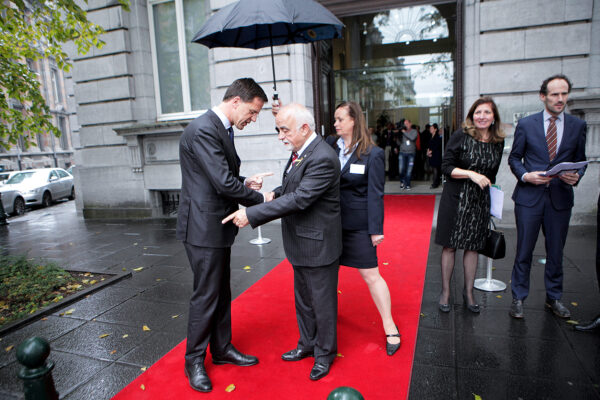
Negotiations to form a new coalition government in the Netherlands are at a standstill after center-right parties failed to do a deal with the Greens.
Talks broke down when the four parties could not find common ground on climate, immigration and income policy.
All major parties have since reiterated their red lines, which rule out many of the alternatives.
But some of those red lines could be negotiable. Dutch parties have always found a way in the past. It is far too early to expect they might fail this time.
Green party out
Green party leader Jesse Klaver has ruled out a resumption of talks with Prime Minister Mark Rutte’s liberals, the centrist liberal Democrats and the conservative Christian Democrats.
Rutte’s party lost support in the March election but remained the single largest. The other three parties gained at the expense of Labor on the left and the nativist Freedom Party on the far right.
The four have comfortable majorities in both houses of parliament. An alliance seemed sensible, but it turned out the gaps in policy were too wide.
Klaver may yet come back on his word if all other options are exhausted, but for now he is out.
Christian Union in?
The easiest solution would be to swap the Greens for the Christian Union, which is economically progressive but socially conservative.
The four parties would have a narrower majority, but they have cooperated on economic and fiscal policy in the past.
The trouble is that the Christian Union’s views on donor registration, drug policy and euthanasia are opposite to the liberal Democrats’, who prize themselves on their progressive secularism.
Hence liberal Democrat leader Alexander Pechtold has described a pact with the Christian Union as “undesirable”. He has proposed exploring a coalition with the far-left Socialist Party instead.
Flirting with the far left
The Socialists, however, refuse to sit down with Rutte’s liberals. Their economic policies are almost impossible to reconcile.
Pechtold isn’t really eager for a coalition with the far left either. His Democrats support closer European integration, labor reforms and further liberalizations in health care. The Socialists reject all three. But he needs to signal to his base that he’s trying to avoid being drawn into a coalition with the Christian Union at all costs.
He can so relatively risk-free, because the Christian Democrats are unwilling to join a government without the liberals. Without them, there is no left-wing alternative.
On the sidelines
Two major parties are on the sidelines.
The Freedom Party, despite being the second largest, is shunned by nearly all other parties. The Christian Democrats and liberals teamed up with Geert Wilders’ nationalists in 2010 but were dismayed when he walked out two years later. They have yet to forgive Wilders for this betrayal and he has since radicalized in his anti-EU and anti-immigrantion views.
Labor, which could give either the left or the center-right a majority, has so far refused to join any negotiations, seeing as how badly it lost the election. It went down from 25 to 6 percent support.
Political theater
It looks like there is no easy solution then, but there seldom is.
Dutch politicians may have overlearned the lesson of 2012, when Labor and the liberals surprised voters by forming a two-party government within weeks of the election.
A left-right coalition seemed the only workable solution at the time and the Netherlands needed a government quickly to cope with the European debt crisis. But it flustered left- and right-wing voters, who had flocked to Labor and the liberals, respectively, in a bid to keep the other party out of power.
Had talks with other parties been attempted and failed, it might have made it easier for voters to accept the inevitability of a pact with their rivals.
Now there is less urgency. The Dutch economy is growing. Public finances are stable. The parties can afford a bit of political theater to make the outcome more palatable to their supporters.
